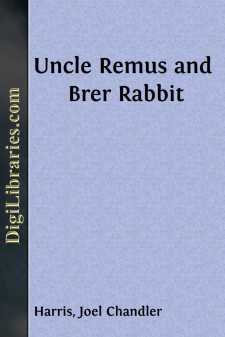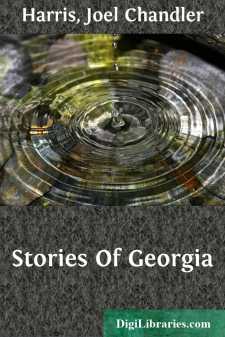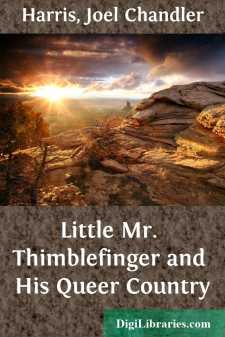Categories
- Antiques & Collectibles 13
- Architecture 36
- Art 48
- Bibles 22
- Biography & Autobiography 813
- Body, Mind & Spirit 142
- Business & Economics 28
- Children's Books 17
- Children's Fiction 14
- Computers 4
- Cooking 94
- Crafts & Hobbies 4
- Drama 346
- Education 46
- Family & Relationships 57
- Fiction 11829
- Games 19
- Gardening 17
- Health & Fitness 34
- History 1377
- House & Home 1
- Humor 147
- Juvenile Fiction 1873
- Juvenile Nonfiction 202
- Language Arts & Disciplines 88
- Law 16
- Literary Collections 686
- Literary Criticism 179
- Mathematics 13
- Medical 41
- Music 40
- Nature 179
- Non-Classifiable 1768
- Performing Arts 7
- Periodicals 1453
- Philosophy 64
- Photography 2
- Poetry 896
- Political Science 203
- Psychology 42
- Reference 154
- Religion 513
- Science 126
- Self-Help 84
- Social Science 81
- Sports & Recreation 34
- Study Aids 3
- Technology & Engineering 59
- Transportation 23
- Travel 463
- True Crime 29
Mingo And Other Sketches in Black and White
Categories:
Description:
Excerpt
IN 1876, circumstances, partly accidental and partly sentimental, led me to revisit Crooked Creek Church, near the little village of Rockville, in Middle Georgia. I was amazed at the changes which a few brief years had wrought. The ancient oaks ranged roundabout remained the same, but upon everything else time had laid its hand right heavily. Even the building seemed to have shrunk: the pulpit was less massive and imposing, the darkness beyond the rafters less mysterious. The preacher had grown grey, and feebleness had taken the place of that physical vigour which was the distinguishing feature of his interpretations of the larger problems of theology. People I had never seen sat in the places of those I had known so well. There were only traces here and there of the old congregation, whose austere simplicity had made so deep an impression upon my youthful mind The blooming girls of 1860 had grown into careworn matrons, and the young men had developed in their features the strenuous uncertainty and misery of the period of desolation and disaster through which they had passed. Anxiety had so ground itself into their lives that a stranger to the manner might well have been pardoned for giving a sinister interpretation to these pitiable manifestations of hopelessness and unsuccess.
I had known the venerable preacher intimately in the past; but his eyes, wandering vaguely over the congregation, and resting curiously upon me, betrayed no recognition. Age, which had whitened his hair and enfeebled his voice, seemed also to have given him the privilege of ignoring everything but the grave and the mysteries beyond.
These swift processes of change and decay were calculated to make a profound impression, but my attention was called away from all such reflections. Upon a bench near the pulpit, in the section reserved for the coloured members, sat an old negro man whose face was perfectly familiar. I had known him in my boyhood as Mingo, the carriage-driver and body-servant of Judge Junius Wornum. He had changed but little. His head was whiter than when I saw him last, but his attitude was as firm and as erect, and the evidences of his wonderful physical strength as apparent, as ever. He sat with his right hand to his chin, his strong serious face turned contemplatively toward the rafters. When his eye chanced to meet mine, a smile of recognition lit up his features, his head and body drooped forward, and his hand fell away from his face, completing a salutation at once graceful, picturesque, and imposing.
I have said that few evidences of change manifested themselves in Mingo; and so it seemed at first, but a closer inspection showed one remarkable change. I had known him when his chief purpose in life seemed to be to enjoy himself. He was a slave, to be sure, but his condition was no restraint upon his spirits. He was known far and wide as "Laughing Mingo," and upon hundreds of occasions he was the boon companion of the young men about Rockville in their wild escapades. Many who read this will remember the "'possum suppers" which it was Mingo's delight to prepare for these young men, and he counted among his friends and patrons many who afterward became distinguished both in war and in the civil professions. At these gatherings, Mingo, bustling around and serving his guests, would keep the table in a roar with his quaint sayings, and his local satires in the shape of impromptu doggerel; and he would also repeat snatches of orations which he had heard in Washington when Judge Wornum was a member of Congress. But his chief accomplishments lay in the wonderful ease and fluency with which he imitated the eloquent appeals of certain ambitious members of the Kockville bar, and in his travesties of the bombastic flights of the stump-speakers of that day.
It appeared, however, as he sat in the church, gazing thoughtfully and earnestly at the preacher, that the old-time spirit of fun and humour had been utterly washed out of his face. There was no sign of grief, no mark of distress, but he had the air of settled anxiety belonging to those who are tortured by an overpowering responsibility. Apparently here was an interesting study. If the responsibilities of life are problems to those who have been trained to solve them, how much more formidable must they be to this poor negro but lately lifted to his feet!...








